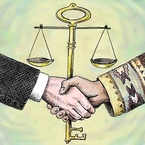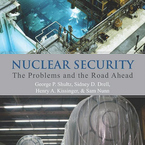Henry A. Kissinger
Distinguished Visiting Fellow
Biography:
Henry A. Kissinger is a distinguished visiting fellow at the Hoover Institution. He was sworn in on September 22, 1973, as the fifty-sixth secretary of state, a position he held until January 20, 1977. He also served as assistant to the president for national security affairs from January 20, 1969, until November 3, 1975. At present, Kissinger is chairman of Kissinger Associates, an international consulting firm. For a detailed list of Kissinger's other activities, please see his biography.













